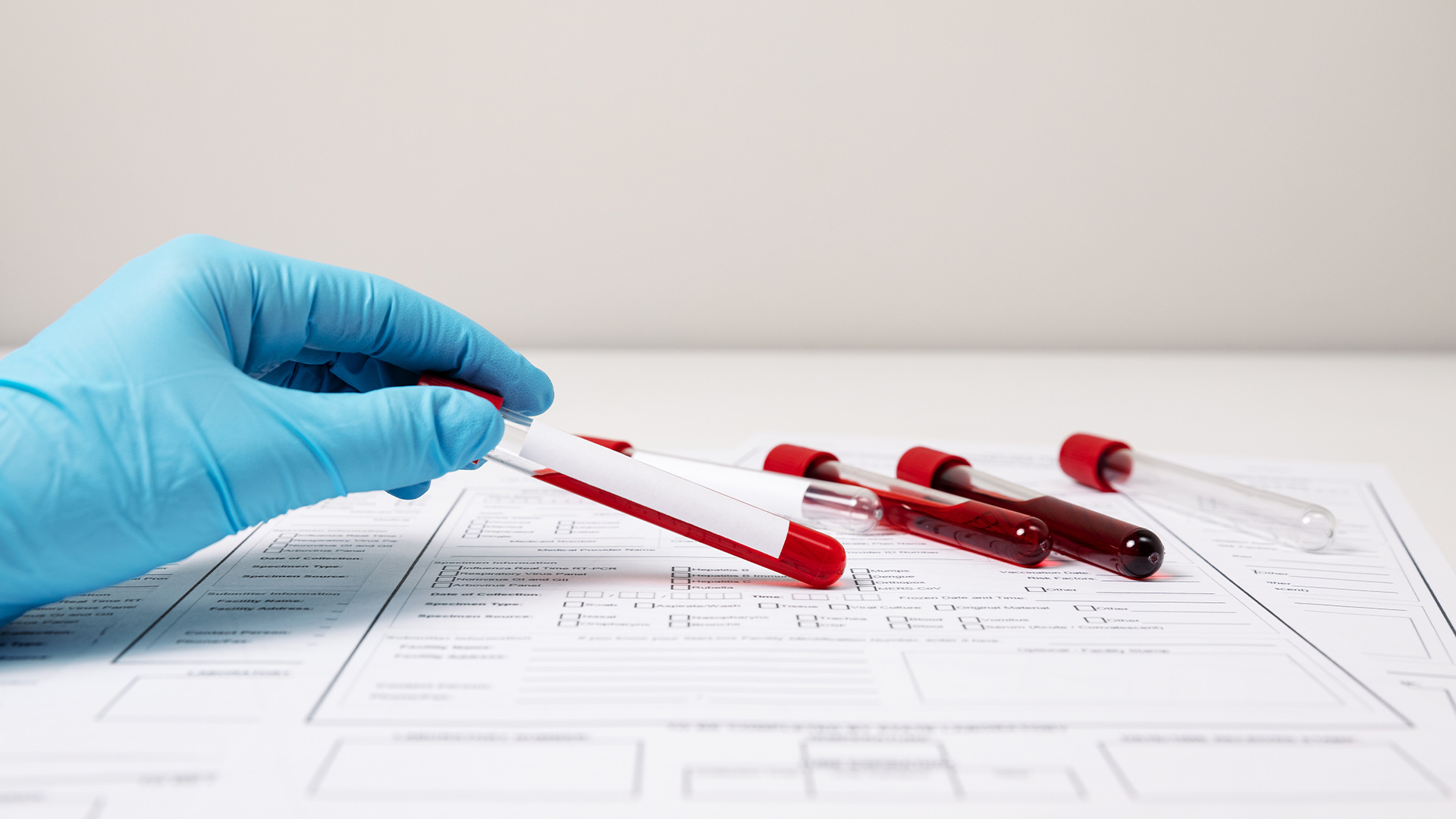The Impact of Regular Blood Tests on Aging: A Guide to Keeping Your Health on Track
Regular blood tests are one of the most effective ways to stay on top of your health as you age. By monitoring key health indicators like cholesterol, blood sugar, thyroid function, vitamin D levels, and liver and kidney health, you can catch potential problems early and take action to prevent or manage chronic diseases.

As we age, keeping track of our health becomes more important than ever. Our bodies go through changes that can affect everything from our energy levels and metabolism to our heart health and hormone balance. One of the most effective ways to monitor and maintain your health as you age is through regular blood tests.
Blood tests are an essential tool in preventive care, helping to identify potential health issues before they become serious problems. Whether you’re looking to manage chronic conditions, optimize your health, or catch signs of illness early, blood tests provide valuable insights into how your body is functioning. In this article, we’ll explore how regular blood tests can support healthy aging and keep your health on track.
Why Regular Blood Tests Are Important
Blood tests can provide a snapshot of your overall health, showing you exactly how your body is functioning at a given moment. As we age, our bodies become more prone to conditions like heart disease, diabetes, and thyroid disorders. Regular blood tests help detect early signs of these conditions, allowing you to take action before they become more serious.
In addition to disease prevention, blood tests can help:
- Monitor chronic conditions: If you have conditions like diabetes, high cholesterol, or hypertension, regular blood tests can help track your progress and adjust treatments as needed. - Evaluate organ function: Blood tests can measure how well your liver, kidneys, and other organs are functioning, helping to detect issues before they become critical. - Optimize hormone levels: As we age, our hormone levels naturally decline or fluctuate. Blood tests can identify imbalances in testosterone, estrogen, thyroid hormones, and other key hormones that affect everything from energy to skin health.
Key Blood Tests to Monitor as You Age
1. Cholesterol and Lipid Profile
High levels of cholesterol and lipids in the blood can increase the risk of heart disease, which is a leading cause of death in older adults. The lipid profile is a common blood test that measures various types of cholesterol, including:
- Total cholesterol - LDL (bad) cholesterol - HDL (good) cholesterol - Triglycerides
A high level of LDL cholesterol can lead to plaque buildup in the arteries, which can increase the risk of heart attack and stroke. On the other hand, high levels of HDL cholesterol can help protect the heart by carrying cholesterol away from the arteries.
Regular testing of cholesterol levels allows you to monitor your heart health and take steps, such as dietary changes, exercise, or medication, to keep your cholesterol levels in check.
Real Example: Bill Clinton, the former U.S. president, has been an advocate for maintaining healthy cholesterol levels through regular checkups and lifestyle changes. He made significant changes to his diet and exercise routine to improve his heart health after undergoing heart surgery.
2. Blood Sugar (Glucose) and HbA1c
As we age, the risk of developing type 2 diabetes increases, especially if we have a family history or risk factors such as obesity or a sedentary lifestyle. Monitoring your blood sugar levels through regular testing is crucial for detecting early signs of diabetes or insulin resistance.
- Fasting blood glucose test: Measures your blood sugar level after fasting for at least 8 hours. - HbA1c test: Measures your average blood sugar levels over the past 2–3 months, providing a more comprehensive view of your blood sugar control.
High blood sugar levels can damage organs over time, leading to complications like kidney disease, vision problems, and nerve damage. Regular blood sugar testing helps you take proactive steps to manage your blood sugar and reduce the risk of diabetes-related complications.
Real Example: Tom Hanks, the actor, was diagnosed with type 2 diabetes after years of high blood sugar levels. He now manages his condition through lifestyle changes, including regular blood tests and a healthy diet.
3. Thyroid Function Tests
The thyroid is a butterfly-shaped gland in your neck that produces hormones regulating metabolism, energy levels, and overall body function. As we age, thyroid function can decline, leading to either hypothyroidism (underactive thyroid) or hyperthyroidism (overactive thyroid).
Common thyroid tests include:
- TSH (thyroid-stimulating hormone): A test that measures the level of TSH in the blood, which indicates how well the thyroid is working. - T3 and T4 tests: These measure the levels of thyroid hormones in the blood.
Hypothyroidism can cause symptoms like fatigue, weight gain, and depression, while hyperthyroidism can lead to weight loss, rapid heartbeat, and anxiety. Regular thyroid function tests can help detect issues early and allow for timely treatment.
Real Example: Oprah Winfrey has been open about her struggles with thyroid issues and how regular blood tests helped her identify and manage her condition. Her proactive approach to thyroid health has allowed her to maintain her energy and vitality as she ages.
4. Vitamin D Levels
Vitamin D plays an essential role in bone health, immune function, and overall well-being. As we age, our bodies become less efficient at producing vitamin D from sunlight, which can lead to vitamin D deficiency. This can result in weakened bones, muscle pain, and an increased risk of fractures, particularly in older adults.
A simple blood test can measure your 25-hydroxyvitamin D levels, which indicates how much vitamin D is in your system. If your levels are low, your doctor may recommend supplements, dietary changes, or more time in the sun to improve your vitamin D levels.
Real Example: Rihanna, the singer and entrepreneur, has been vocal about her struggles with low vitamin D levels. She uses regular blood tests to monitor her levels and ensure her bone health remains strong as she ages.
5. Liver and Kidney Function
Both the liver and kidneys play crucial roles in filtering toxins from the body and maintaining overall health. As we age, liver and kidney function can decline, increasing the risk of chronic conditions like liver disease and kidney failure.
Regular blood tests can measure liver enzymes and creatinine levels, which provide insight into how well your liver and kidneys are functioning. Early detection of liver or kidney issues allows for timely intervention and the prevention of further damage.
Regular Blood Tests for Healthy Aging
Regular blood tests are one of the most effective ways to stay on top of your health as you age. By monitoring key health indicators like cholesterol, blood sugar, thyroid function, vitamin D levels, and liver and kidney health, you can catch potential problems early and take action to prevent or manage chronic diseases.
The best part is that many of the conditions detected through blood tests are preventable or manageable with lifestyle changes, medication, or early intervention. By making blood tests a regular part of your healthcare routine, you’re actively working to slow down the aging process, prevent disease, and maintain your overall health.
So, schedule your next blood test, stay proactive about your health, and take charge of your well-being. Early detection is the key to living a longer, healthier, and more vibrant life.


